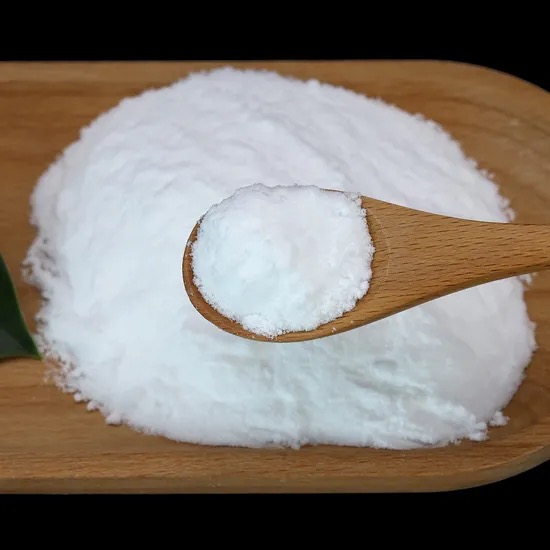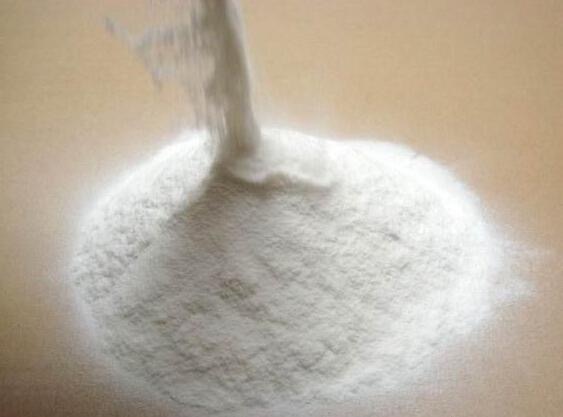Views: 222 Author: Sara Publish Time: 2025-10-23 Origin: Site








Content Menu
● Key Isomaltulose Manufacturers and Suppliers in Poland
● Industry Overview and Market Trends
● Isomaltulose Manufacturing Process in Poland
● Applications in Food, Beverage, and Healthcare
● FAQ
>> 1. What is isomaltulose and why is it important?
>> 2. Who are the main isomaltulose suppliers in Poland?
>> 3. What industries use isomaltulose in Poland?
>> 4. How is isomaltulose produced industrially in Poland?
>> 5. Are Polish isomaltulose manufacturers compliant with safety regulations?
Isomaltulose is a naturally derived carbohydrate used predominantly as a functional sweetener in the food, beverage, and healthcare industries. Known for its low glycemic index and tooth-friendly properties, isomaltulose provides steady, slow-releasing energy, making it highly desirable in health-oriented formulations. Poland has established itself as a growing base for manufacturers and suppliers of isomaltulose, offering innovative solutions tailored to diverse market demands. This article comprehensively explores Poland's isomaltulose manufacturing landscape, key players, production processes, applications, and market trends.

Polish companies focused on health ingredients have been developing and supplying isomaltulose with a dedication to quality and innovation. Some noteworthy organizations include:
- Medcalm Polska sp. z o.o.: Located in Gniezno, this company manufactures dietary supplements emphasizing hydration and energy metabolism, utilizing clinically tested formulations under GMP standards.
- Wxn Labs: Based in Warsaw, they supply raw coconut water powder rich in electrolytes and collaborate in developing nutrient-rich, wellness-enhancing products, often integrating isomaltulose for improved energy release.
- Zbyszko Company: Operating from Radom, they produce sugar-free supplements featuring magnesium and vitamin B6 with isomaltulose, targeting energy metabolism and fatigue reduction.
The Polish isomaltulose market mirrors the rising European demand for natural, functional sweeteners. Increasing health consciousness and regulatory support drive manufacturers to innovate with formulations that lower sugar content without compromising taste or nutrition.
- Functional Ingredient Blends: Isomaltulose is frequently combined with polyols and other natural sweeteners to create balanced nutritional profiles.
- Regulatory Compliance: Compliance with EU food safety regulations ensures safe, high-quality products fit for international markets.
- Sustainable Production: Environmental awareness pushes companies toward sustainable sourcing and eco-friendly processes.
The industrial production of isomaltulose in Poland employs advanced biotechnological methods, prominently the enzymatic isomerization of sucrose or beet molasses into isomaltulose using immobilized sucrose isomerase (SIase) enzymes. The process typically includes:
1. Substrate Preparation: Raw materials like sugar beet molasses (BM) are pretreated, often with mild acid hydrolysis to enhance sucrose availability.
2. Enzyme Immobilization: SIase enzymes are immobilized in polyvinyl alcohol and sodium alginate beads, enhancing their stability and reusability during the conversion process.
3. Isomerization Reaction: The immobilized SIase catalyzes the conversion of sucrose into isomaltulose under controlled conditions—typically 40°C and pH 6—yielding high purity isomaltulose concentrations (up to 85.8%) with excellent conversion rates.
4. Separation and Purification: After conversion, the isomaltulose-rich syrup undergoes filtration, crystallization, and purification methods such as resin treatment to remove impurities like glucose, fructose, and residual sucrose. Crystallization may be achieved by concentration and seeding, producing high-purity isomaltulose crystals.
5. Reusability and Efficiency: The immobilized enzymes demonstrate good operational stability and can be reused through multiple reaction cycles, reducing production costs and enhancing economic feasibility.
This two-step enzymatic and purification process represents a cost-effective and scalable method for isomaltulose production deployed by Polish manufacturers, supporting growing demand at both local and export levels.

Isomaltulose's characteristics make it valuable for various applications:
- Sports Nutrition: Its slow-release energy profile suits endurance athletes and active individuals.
- Diabetic and Special Diet Products: Low glycemic responses help manage blood sugar in diabetic-friendly foods.
- Dental Care Products: Its tooth-friendly nature supports oral health formulations such as sugar-free gums and candies.
- Functional Beverages and Hydration Products: Often combined with electrolytes like magnesium and potassium to enhance hydration and energy metabolism.
- Pharmaceuticals and Supplements: Used as a carrier or sweetener in tablets, liquid supplements, and syrups aimed at sustained energy and metabolic support.
Poland's isomaltulose manufacturing sector is marked by advanced biotechnological expertise and strong compliance with EU standards. Producers like Medcalm Polska, Wxn Labs, and Zbyszko offer high-quality isomaltulose products suited for multiple health-focused industries. Through innovative enzymatic processes using immobilized SIase, Polish manufacturers achieve efficient, economical production of isomaltulose with high purity and yield. Coupled with a trend toward sustainable and natural ingredients, Poland is well-positioned to support the global growth in demand for functional sweeteners offering health benefits such as low glycemic index and tooth safety.

Isomaltulose is a natural sugar alternative that provides slow-release energy, has a low glycemic index, and is gentle on teeth, making it ideal for health-conscious consumers.
Prominent suppliers include Medcalm Polska sp. z o.o., Wxn Labs, and Zbyszko Company, offering innovative isomaltulose-based products tailored for food, beverage, and healthcare industries.
Isomaltulose is used broadly in sports nutrition, special dietary products, oral care, functional beverages, and dietary supplements.
It is primarily produced by enzymatic isomerization of sucrose or beet molasses using immobilized sucrose isomerase enzymes, followed by purification and crystallization.
Yes, they adhere strictly to EU food safety and quality standards to ensure their products meet regulatory demands domestically and internationally.
[1](https://www.frontiersin.org/journals/bioengineering-and-biotechnology/articles/10.3389/fbioe.2021.691547/full)
[2](https://patents.google.com/patent/PL2024378T3/en)
[3](https://www.sciencedirect.com/science/article/pii/S0963996922001181)
[4](https://pmc.ncbi.nlm.nih.gov/articles/PMC8322766/)
[5](https://www.gea.com/pl/customer-cases/hilge-pumps-at-beneo/)
[6](https://www.efsa.europa.eu/en/efsajournal/pub/8491)
[7](https://patents.google.com/patent/US4359531A/en)
[8](https://www.frontiersin.org/journals/bioengineering-and-biotechnology/articles/10.3389/fbioe.2021.691547/xml/nlm)
[9](https://www.linkedin.com/pulse/isomaltulose-raw-material-market-analysis-type-kpyfe)
[10](https://ensun.io/search/hydration-and-electrolyte-powder/poland)
[11](https://ferreralimentacion.com/en/producto/isomaltulose/)
